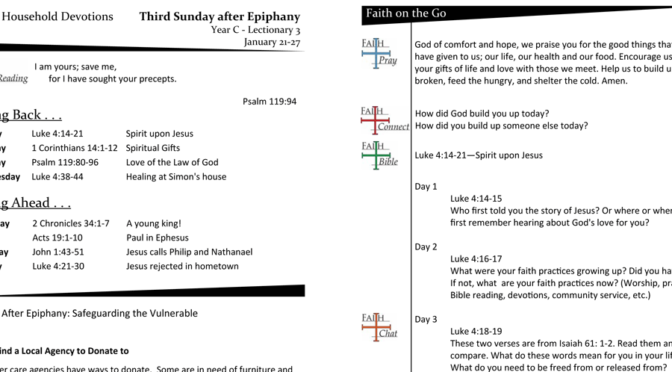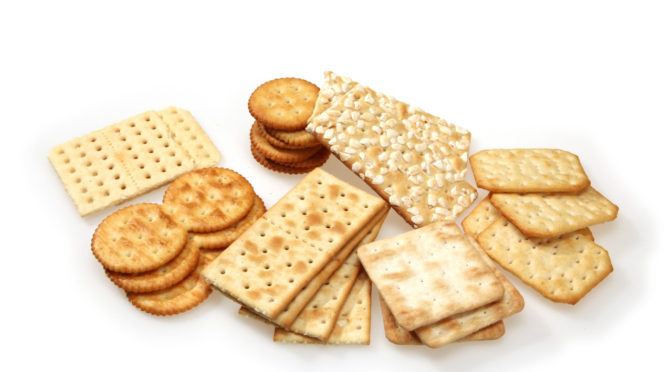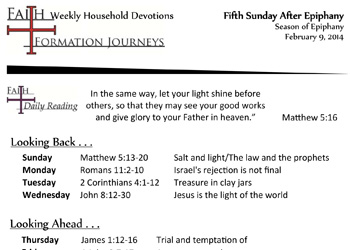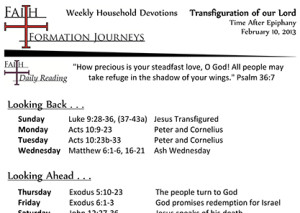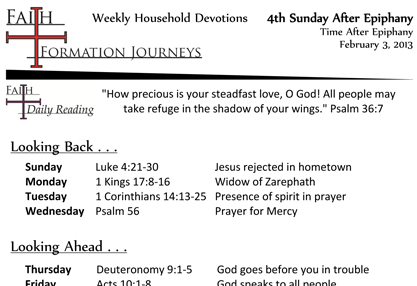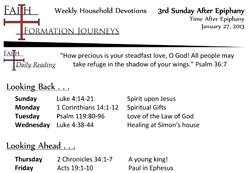Here is the devotion page for the Third Sunday after Epiphany, Lectionary 3 (January 21-27) – Year C. (Click on the words!)
NOTE: There has been some confusion about the dates on the Devotion pages. The dates are the range of Sundays that the pages are for. If you are using these starting on a Sunday in the range, then you are using the correct one! Read below for a longer explanation.
Did you miss a week? Go to the Weekly Devotion page to download past weeks!
Lectionary dates and time after Pentecost
We are working on developing a complete 3 year cycle of devotion pages for the Revised Common Lectionary. To make this really work the pages need to be tied to the lectionary Sunday, not the specific date. For most seasons of the church year this is pretty easy to do. The First Sunday in Advent is 4 weeks before Christmas, every year, so the date floats around, but the readings are always the same. It is similar for Epiphany, Lent and Easter. The Second Sunday after Epiphany (Note that Epiphany dates have a range, too) is always the same readings, as is the Second Sunday of Lent and Easter. Pentecost and the season after are different. Unlike the other seasons where the first reading of the season is set, in the time after pentecost the last reading is set. The readings for Christ the King are always lectionary 34 and Christ the King Sunday is always on the Sunday that is between November 20 and 26, inclusive of those dates (five weeks before Christmas). This wouldn’t be a big deal if Easter was also set, but Easter moves – by as much as 5 weeks! So the Day of Pentecost can be closer or further away from Christ the King, depending on when Easter falls. So if the Easter is early, the season after Pentecost is longer, and there are more readings leading up to Christ the King. If Easter is late, there are fewer. Since the last Sunday is of the season is set, that means the early Sundays are not always the same readings. For example – in 2017 the 2nd Sunday after Pentecost used the readings for Lectionary 11 (Easter was relatively late that year). In 2018 the 2nd Sunday after Pentecost used Lectionary 9 (Easter was early). So, indicating which Sunday after Pentecost on the devotion pages is not clear from year to year – so we use lectionary numbers that are tied to a range of Sundays.

